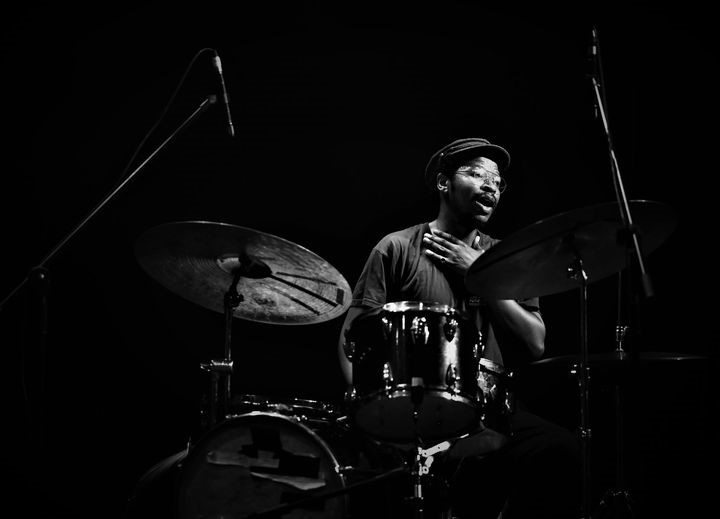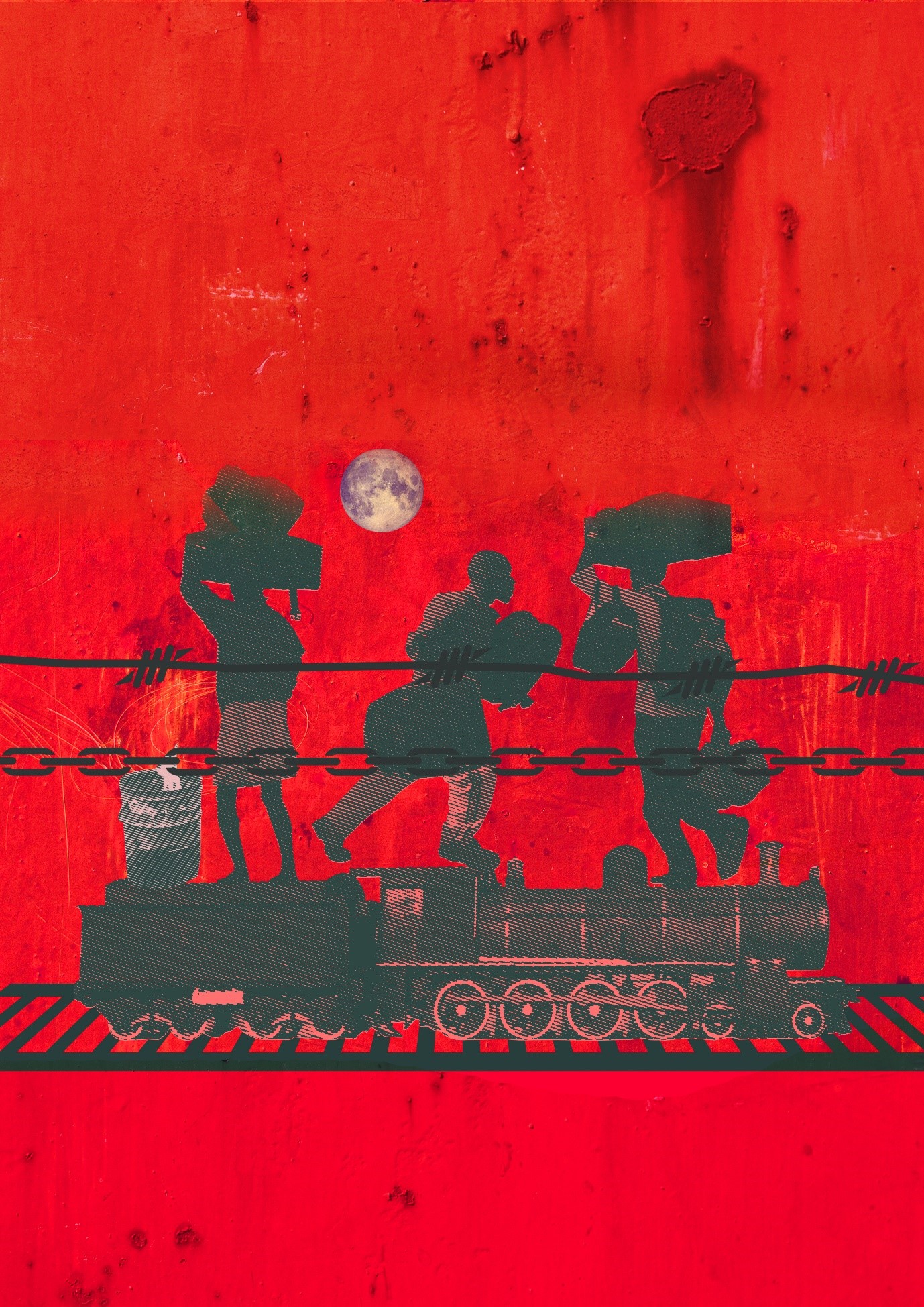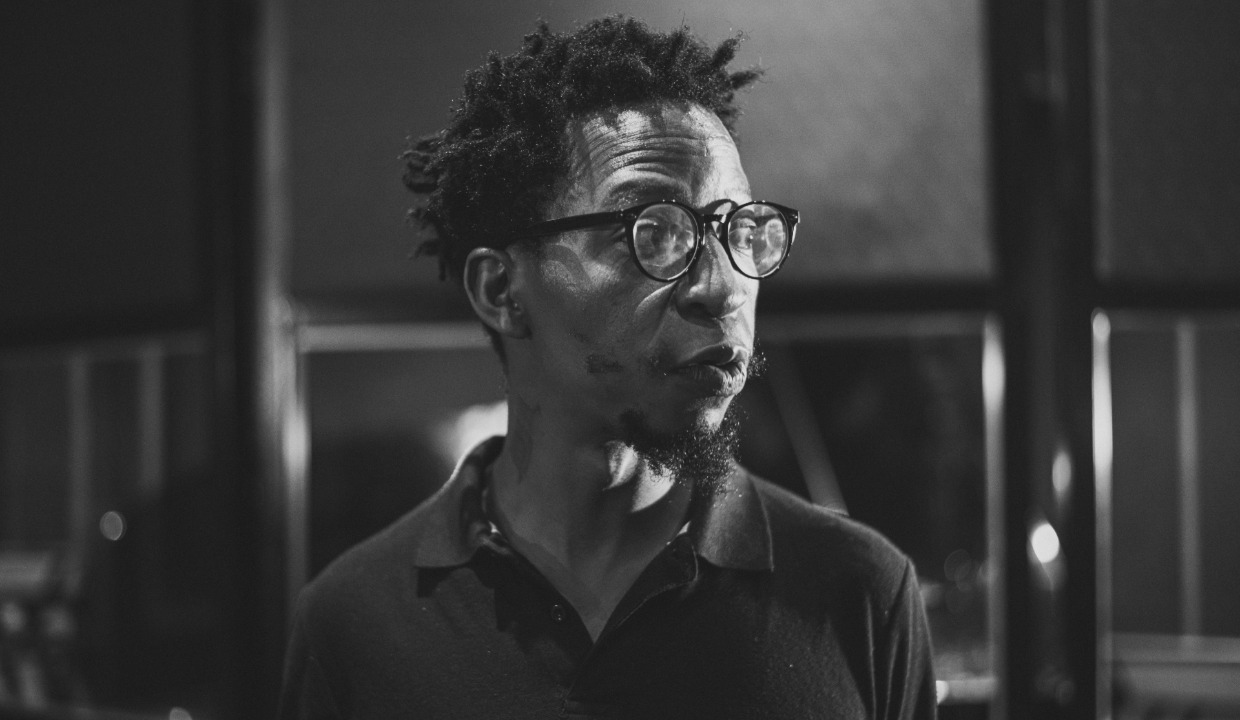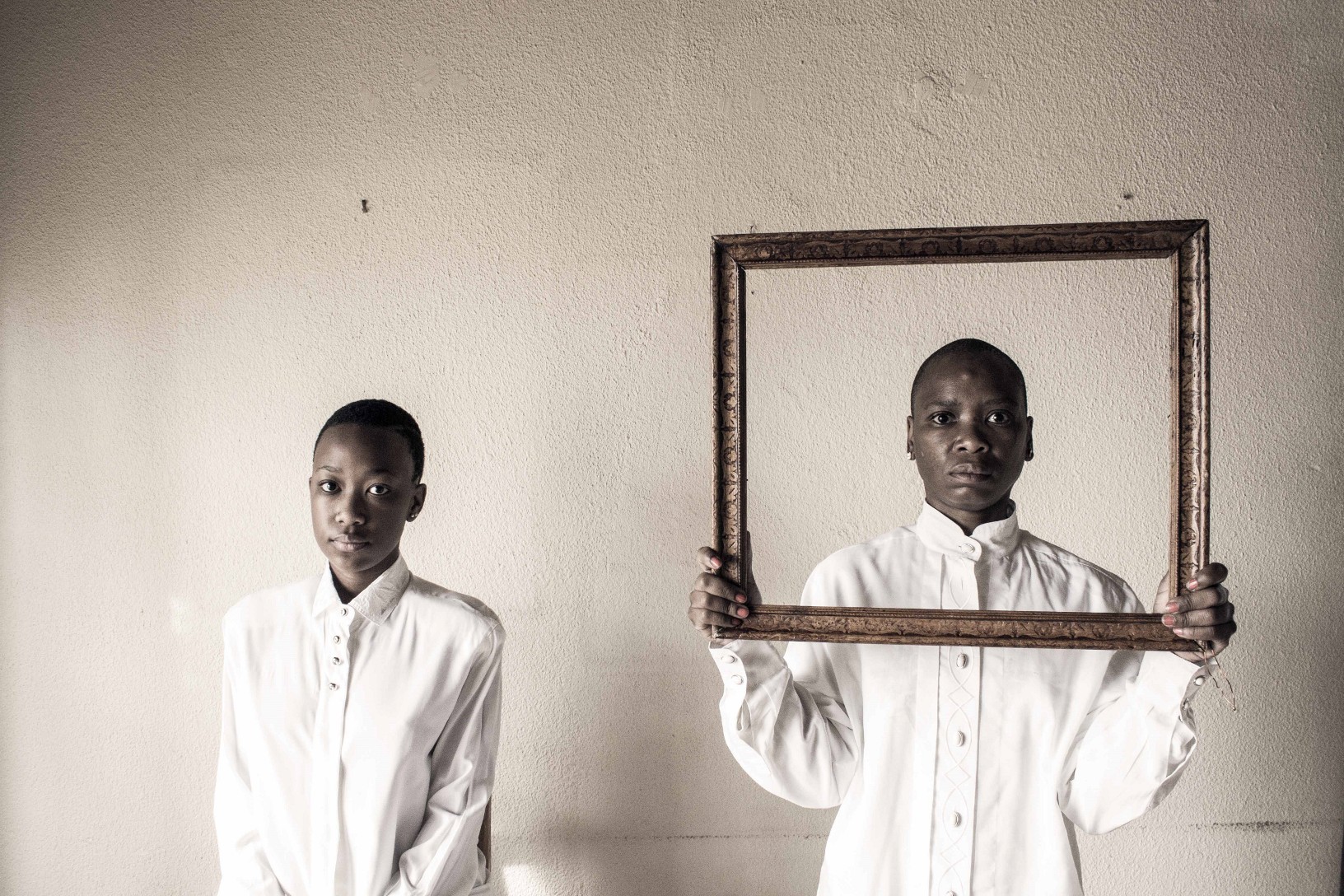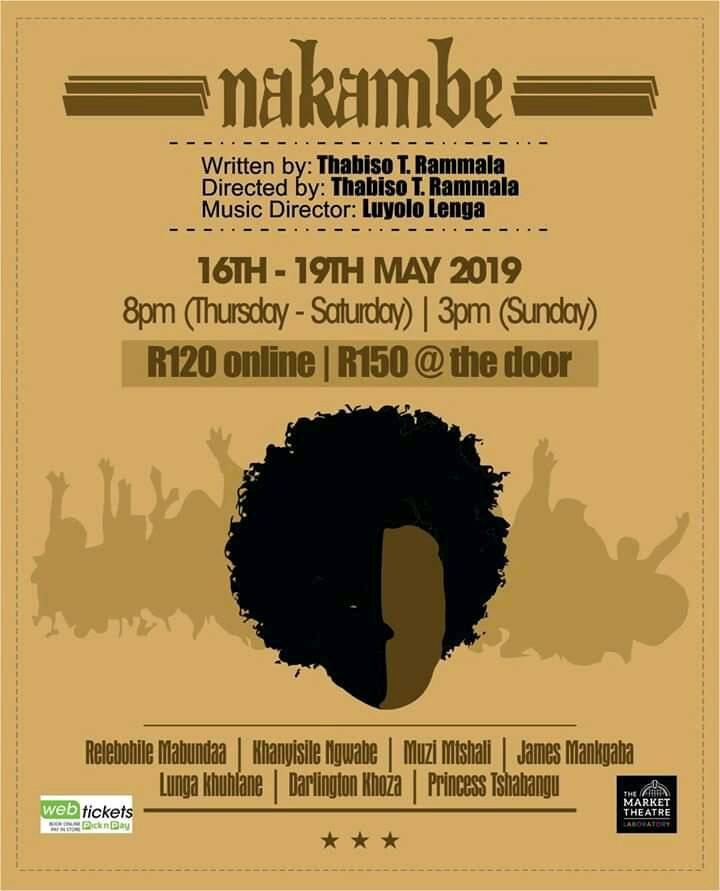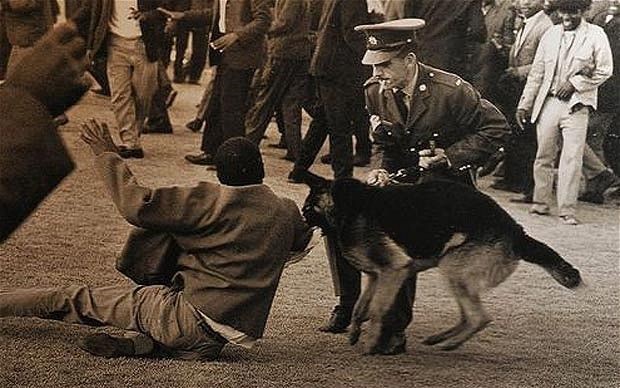An intellectual, theorist, writer, musician, drummer. His name? Tumi Mogorosi.
Striving always to render a true and honest account of Black artistic expression, tracing its different elements on diverse platforms. Through his latest musical installation, Mogorosi takes us on a musical and poetic journey; creating a disturbance in the contemporary ebb and flow of the jazz musical landscape. The entire musical landscape, actually. This is what sets Mogorosi apart. Extremely experimental in his thought process and musical creativity, he is constantly fusing Black radical theoretical thought with Black musical artistic expression.
It is never an easy thing to disturb the narrative. Courageous artistry, in a world that demands conformity, requires a unique, distinct level of confidence in one’s creative journey.
I think that notions of inheritance reverberate quite consistently in Tumi’s latest offering. This evokes an interesting conversation, encouraging the listener to think further around this theme. Inheritance, in the Black context, leaves little to nothing to be desired. From inherited trauma, inherited generational poverty, inherited blackness broadly, it really is a curse. To knowingly and I dare say intentionally bring a Black child into this damned wretched earth is incredibly selfish. What world do you want them to inherit? You are condemning them to engineered doom and failure, when they could have remained in the land of milk and honey far away from this here existence. But alas the population keeps growing. Condom sales continue to be in decline, and blacks, or dear damned Blacks, continue to suffer and inherit what you selfish bastards in two and a half minutes of raw pleasure decided on.
I think of music like this… it is a way of throwing yourself into the future. So, in many ways, in diverse aspects, it presents as a form of inheritance. Music outgrows us. Outlives us. Becomes bigger than us; only to live beyond us after that. Music as a form of expression already encompasses a lot in it; it has personality, but as is true of personality, it changes over time and becomes what it wants, when it wants. Music then becomes beautiful as a form of inheritance in that regard, because the unknown of what it could be when it is out there, at different times and in different ears, becomes an exciting thought. Some music will always be relevant, there is just no denying it. And because we know that the more things change, the more they stay the same, we know that some music will always be relevant to any time it finds itself in, from the moment of its release.
A caveat of inheritance is the real possibility that one’s work (and the message behind the work) can become diluted and sometimes be completely lost over time to those who are meant to inherit it. But then again, things were never meant to remain the same. Tumi uses his music as a medium not only of expression, but also as a mode of teaching and a mode of thought. His music is meant to challenge notions of being; of Blackness; of feminism and other traditions. Tumi is critical of the status quo and believes in an alternative world, where blacks assume control and power. He believes it and this comes out in his music. This is the legacy I would like to think Tumi would like to leave behind from his music. It is clear, direct and understandable. Tumi is methodical about what he wants you to experience when engaging with his craft, and that comes out ever so clearly when listening to his music and watching him play, as we did at the album launch. With this clarity of thought and illustrious explanation of his craft, the meaning behind Tumi’s work will not be lost over time. The digital archival era makes this even that much easier. The message of a radical Black thinker who wants the ultimate attainment of Black power and strong Black radical love and solidarity can never be diluted, because that message is bold, thick, and clear.
Imagine this: lying in bed, facing up or to the side, falling deeper and deeper into sleep but not yet quite asleep. Consciously unconscious. You can hear everything. You can feel everything. You can blink your eyes and breathe in and out but that is about as much you can do in this state. You are numb. You cannot speak; you want to scream but you cannot move. Your heart is racing, thoughts are everywhere, you do not know what to do but pray and wish to get out of this state. It has been termed lucid dreaming.

As I was seated with full view of the group performing this is what I felt. I was devoid of control. One tenor, four sopranos, drums, saxophone, trumpet, upright bass. The sound fills the room, completely consuming, engulfing the audience. I could neither speak, move, clap… nothing. In many ways it felt like they were playing to me alone. With every item they played, whether you were sitting or standing the feeling was the same. An absolute sight to behold.
To be Black and to be, as in to exist, is ambitious in a world designed to consistently reject and deny blackness. We are made to believe that there exists nothing like Black love, Black unity, Black organisation, Black ownership, Black thought, much less still, Black pain and the entire Black experience. Yet, the world as it exists today would not be if it were not for the Black. The Black cry, the Black’s dispossession, the Black’s oppression, the Black’s alternative. If not for the existence of the Black, the world as it has been engineered and maintained would not exist. Whiteness depends on the existence of the Black, so that it can immediately reject and deny what the Black is and has said, and use that to build on what it needs and has always needed to maintain its superstructure status. Yet the Black does not exist.
Tumi Mogorosi, at a time when experimentation is, for the most part, avoided, becomes bold, I dare say brave; because difference is not always accepted unless validated by the all-knowing, self-appointed experts and connoisseurs of what is and should or should not be accepted in varying spaces. In this context, in jazz music. There is a trend amongst popularly consumed jazz music that currently exists and much of it, not denying its individual authenticity, seems to take on a distinctly African traditional route. It is deeply rooted in African spirituality, and traditional African references and themes. This is not denying or taking away from its relevance or importance. Tumi comes and then decides to build his album on a Black theoretical lens including a choral choir, and defines himself and his music outside of the normative, defined borders of proven palatable ‘jazz’ music. And he drops it and leaves it to the listener, to do with it and feel it as they choose.
During his captivating album launch, there were themes that continuously came up. Germane to these are those of chaos and confusion, continuing to question while insidiously wanting some more and some more. I think the kind of music Mogorosi does is incredibly brave. The kind of bravery that is in many ways defiant, and in many ways angry. To organise a group of that magnitude, a choir if you will; of strong melodic, classically trained vocalists and organise them into a church-like sort of neo-jazz-like formation, is incredibly brave and it definitely raises the eyebrow.
To be Black is to be many things, but confused is one of the inescapable states of this mode of non-being… To be Black is to be deprived of opportunities. It is to be dispossessed of your land and your resources. It is to be exploited in a capitalist society; a society fashioned to be anti-Black, patriarchal, and heteronormative. To be Black is to struggle for space. Visibility. But to be Black is also to know that you are not white, and by virtue of that it is to be clear who you cannot be, and your place in the world.
For me, the last thing we as Blacks must ever be anxious about is being confused about your place in this world. You are consistently confronted with rejection, denial, violence, and neglect by merely presenting as Black. Before you even open your mouth, the world has already made its thoughts and assumptions of you, and so before you have even exercised your right to open your mouth you are met with vitriol.
With this, I propose the idea that there is power in this whole illustrious idea of confusion, which only the Black possesses. Entertain me and this thought again. Jazz music, Black activism, radical Black love, tradition, and solidarity, all from the outside present as confusing, irrational, and arguably irrelevant too. Oh, but from within, from that sweet spot, there the common Black resides and dwells, not too far from the surface or the undercurrent of all other blacks, where the black in you, sees the Black in me, recognises each other, feels the atmospheric familiarity, and congregates; the confusion ceases to exist, and a celebration ensues. An excitement of radical love comes out and shows off.
With all being said, Tumi Mogorosi’s Group Theory Black Music should be experienced live at least once in this lifetime. A beautiful body of work, worth the hype and all the success it has received, and the heights it is yet to reach.
*Catch Tumi Mogorosi performing at The South African State Theatre on December 3 at 20:00. Tickets are R150 at Pick N Pay and Webtickets http://bit.ly/3UFnBpR

